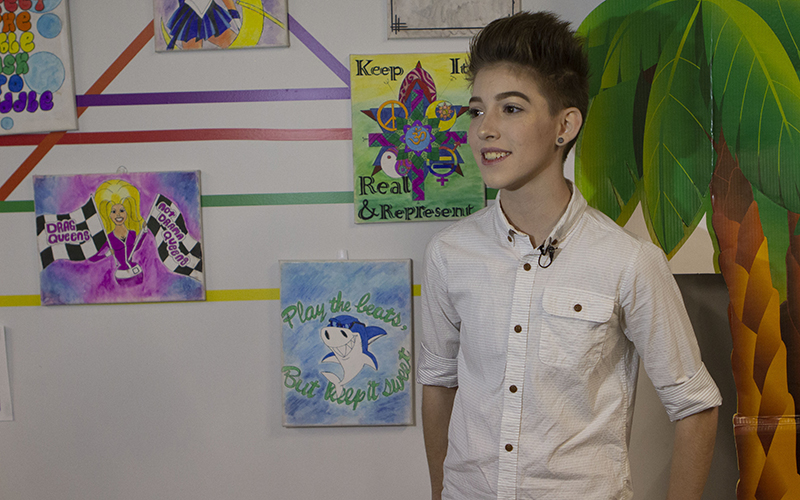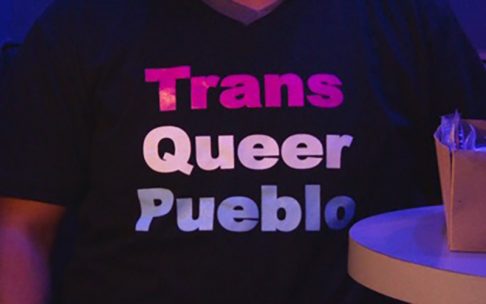PHOENIX – LGBTQ teens are at risk of high rates of depression, sexual assault and discrimination, according to a national survey released Wednesday by a human rights group.
The survey of 12,000 youths – including 330 in Arizona – show many LGBTQ youths still suffer compared to those who are cisgender, leaders of the Human Rights Campaign said at a news conference in Phoenix.
“It’s a little unfortunate to say that none of the statistics are that surprising to me,” said Juno Baier, a transgender teenager. “Every number on the sheet is a kid that I know that’s been through that.”
The survey revealed several findings specific to LGBTQ teens in Arizona:
– More than 50 percent hear negative comments from their parents.
– About 65 percent have “received unwanted sexual comments, jokes, and gestures in the past year.”
– Only one in four teens are out to close family members.
– About 27 percent of transgender youths are never called by their preferred pronouns in school.
“I’ve seen the percentage of kids that go through their every day at school hearing slurs,” said
Baier, who prefers to use the pronoun “they.”
Susan Baier, Juno Baier’s mother, said she ensures inclusivity by using the correct pronouns for her child’s friends.
Each time the family throws a party at their home, name tags are given to each child so that they can explore whatever pronouns they feel fit them that week.
“They need cover to explore,” she said.
The human-rights research focused on teenagers of color because they are underrepresented in most research, said Chad Griffin, commission president. About 47 percent of respondents identified as white.
The survey and other national data outlined the negative health effects that come with being a LGBTQ teenager.
LGBT youth may be more likely to experience violence, such as harassment or physical assault, than cisgender youth – those whose sense of personal identity and gender corresponds with their birth sex, according to the Centers for Disease Control and Prevention.
LGBT youth who are rejected by their parents are also more likely to have unsafe sex and to use drugs and alcohol, according to the CDC report.
Health workers, parents and school officials can do better in several ways, according to the survey, Susan Baier and other experts.
Those who work in a medical office should begin talking to patients about their sexual and gender identities.
Schools should provide training for school staff on what LGBTQ inclusivity looks like.
And it’s important for parents to be informed and advocate for LGBTQ-inclusive spaces, according to the survey, whether or not they have an openly LGBTQ child.
Susan Baier used autocorrect on her smartphone to change pronouns. When her child went from using she/her pronouns to using they/them pronouns, Baier had her phone autocorrect every use of “she” to “they,” and every use of her child’s former name – to “Juno.”
“You don’t want to mess up,” she said.
For those who question her child’s choice of pronouns, Baier has an answer: Someone who spots a lost cellphone does not use “he” or “she” to refer to the owner.
Instead, the response is: “I hope they don’t need it.”
Leaders of the human-rights group hope that the next survey, a few years away, will have more positive results for LGBTQ teens.
But asked whether this year’s data had improved since the last survey six years ago, Kahn wavered.
“Not really.”
Follow us on Twitter.


